Mark Anthony Neal's Blog, page 435
September 14, 2018
The Legend on Lauryn Hill -- Joan Morgan on 20 Years of The Miseducation
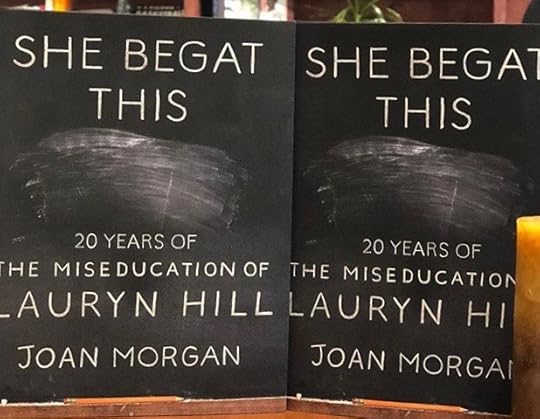 'Joan Morgan discusses her new book
She Begat This: 20 Years of The Miseducation of Lauryn Hill
, which offers an in-depth analysis of Lauryn Hill’s iconic album The Miseducation of Lauryn Hill. On the album’s 20th anniversary, this book is both a portrait of a monumental moment when a young musical artist made history as well as a crucial work of scholarship about an album that inspired an entire generation of musical talent.' -- Midday on WNYC
'Joan Morgan discusses her new book
She Begat This: 20 Years of The Miseducation of Lauryn Hill
, which offers an in-depth analysis of Lauryn Hill’s iconic album The Miseducation of Lauryn Hill. On the album’s 20th anniversary, this book is both a portrait of a monumental moment when a young musical artist made history as well as a crucial work of scholarship about an album that inspired an entire generation of musical talent.' -- Midday on WNYC
Published on September 14, 2018 16:39
The Literary Legacy of New York's Zora Neale Hurston
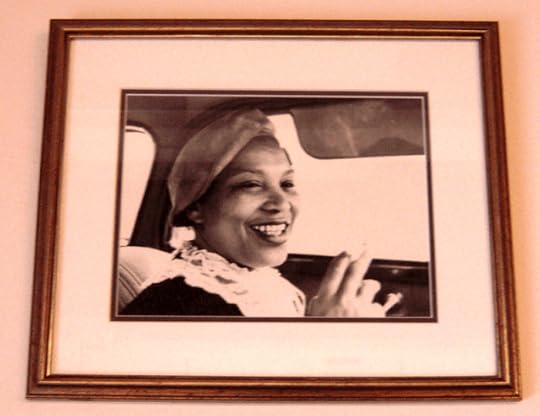 'Zora Neale Hurston documented and portrayed the lives of Black Americans in the early 20th century. Her most recent book, released posthumously this year, is called Barracoon: The Story of the Last Black Cargo, and it tells the life story of Cudjo Lewis, one of the last survivors of the Transatlantic slave trade. He was abducted from West Africa nearly 50 years after the slave trade was outlawed in the United States. Literary critic Deborah Plant, who wrote an introduction to the book, says Hurston had a profound impact on the Black-American literature. "In works like Mules and Men and Their Eyes Were Watching God, Hurston gave us a sense of ourselves as African Americans, as people who were whole and undiminished," Plant told WNYC's Jami Floyd. "Hurston was one of the first authors to actually do that for us."
'Zora Neale Hurston documented and portrayed the lives of Black Americans in the early 20th century. Her most recent book, released posthumously this year, is called Barracoon: The Story of the Last Black Cargo, and it tells the life story of Cudjo Lewis, one of the last survivors of the Transatlantic slave trade. He was abducted from West Africa nearly 50 years after the slave trade was outlawed in the United States. Literary critic Deborah Plant, who wrote an introduction to the book, says Hurston had a profound impact on the Black-American literature. "In works like Mules and Men and Their Eyes Were Watching God, Hurston gave us a sense of ourselves as African Americans, as people who were whole and undiminished," Plant told WNYC's Jami Floyd. "Hurston was one of the first authors to actually do that for us."
Published on September 14, 2018 16:28
Young, White, Affluent — and Learning About Race
 A "conundrum of privilege," explains sociologist Margaret Hagerman reagrding "parents who are identifying as anti-racist and identifying as people who really care about equity and justice" but "are simultaneously giving advantages to their kids." Hagerman talks with Marketplace's Kai Ryssdal's about her new book White Kids: Growing Up with Privilege in a Racially Divided America (NYU Press).
A "conundrum of privilege," explains sociologist Margaret Hagerman reagrding "parents who are identifying as anti-racist and identifying as people who really care about equity and justice" but "are simultaneously giving advantages to their kids." Hagerman talks with Marketplace's Kai Ryssdal's about her new book White Kids: Growing Up with Privilege in a Racially Divided America (NYU Press).
Published on September 14, 2018 08:43
Ruth E. Carter -- The Costume Designer behind Malcolm X and Black Panther on How Costumes Bring Characters to Life
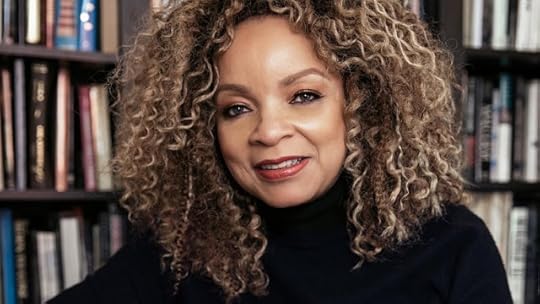 'Ruth E. Carter is an Oscar-nominated costume designer who calls herself "the woman behind your favourite characters." She's spent the last 30 years working on movies like Malcolm X, Selma and Black Panther. Now, there's a whole new exhibit dedicated to exploring her designs. It's called Heroes & Sheroes: The Art & Influence of Ruth E. Carter in Black Cinema and it runs in Pittsburgh at the Heinz History Center until Sunday, December 2. Carter joined Tom Power to look back on her career and discuss how she uses costume to turn an actor into a character. '
'Ruth E. Carter is an Oscar-nominated costume designer who calls herself "the woman behind your favourite characters." She's spent the last 30 years working on movies like Malcolm X, Selma and Black Panther. Now, there's a whole new exhibit dedicated to exploring her designs. It's called Heroes & Sheroes: The Art & Influence of Ruth E. Carter in Black Cinema and it runs in Pittsburgh at the Heinz History Center until Sunday, December 2. Carter joined Tom Power to look back on her career and discuss how she uses costume to turn an actor into a character. '
Published on September 14, 2018 08:25
September 12, 2018
In 1968, Arthur Ashe Made History At The U.S. Open
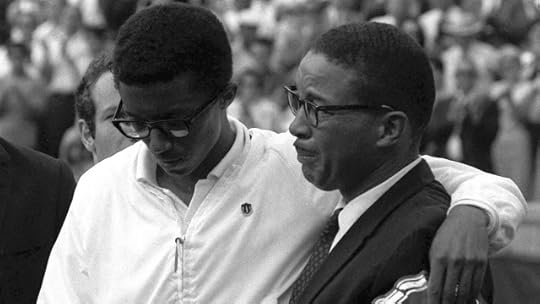 'When Arthur Ashe won the men's singles final at the first U.S. Open in 1968, he made history as the first African-American man to win the Open. That record holds to this day. Photos show a pensive Ashe with his arm around his proud father, Arthur Ashe Sr., his silver trophy tray held in one hand. Raymond Arsenault is the author of a new, extensive biography: Arthur Ashe: A Life. He says that 1968 was the start of a new chapter for Ashe. "Sixty-eight really begins his life as the Arthur Ashe that we know," Arsenault says. "He did great things before 1968, was one of the greatest players in the world already. But as a human being, as someone who transcended sports, it began in '68".' -- Morning Edition
'When Arthur Ashe won the men's singles final at the first U.S. Open in 1968, he made history as the first African-American man to win the Open. That record holds to this day. Photos show a pensive Ashe with his arm around his proud father, Arthur Ashe Sr., his silver trophy tray held in one hand. Raymond Arsenault is the author of a new, extensive biography: Arthur Ashe: A Life. He says that 1968 was the start of a new chapter for Ashe. "Sixty-eight really begins his life as the Arthur Ashe that we know," Arsenault says. "He did great things before 1968, was one of the greatest players in the world already. But as a human being, as someone who transcended sports, it began in '68".' -- Morning Edition
Published on September 12, 2018 14:24
Dramatic Increase in Social Media Use by Teens
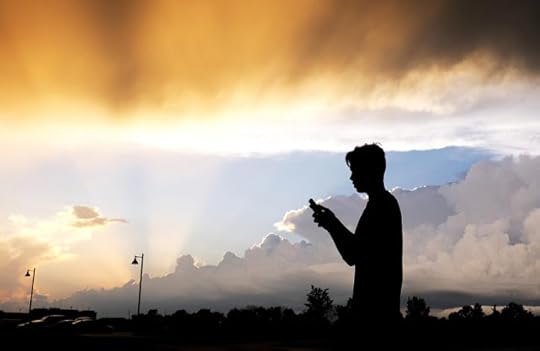 'Six years ago, the San Francisco-based non-profit Common Sense Media began tracking the use of social media by American teenagers and today the organization is publishing the results of a follow-up survey which finds a dramatic increase in the percentage of teens who regularly use social media. Colby Zintl, Vice President of External Affairs at Common Sense Media, discusses the findings of her organization’s new survey with
The Takeaway
.'
'Six years ago, the San Francisco-based non-profit Common Sense Media began tracking the use of social media by American teenagers and today the organization is publishing the results of a follow-up survey which finds a dramatic increase in the percentage of teens who regularly use social media. Colby Zintl, Vice President of External Affairs at Common Sense Media, discusses the findings of her organization’s new survey with
The Takeaway
.'
Published on September 12, 2018 11:54
September 10, 2018
Why Manners Matter by Mark Anthony Neal

Why Manners Matter by Mark Anthony Neal | @NewBlackMan | NewBlackMan (in Exile) I am a 52-year-old African American man. My parents had little materially to give to me, but they did impress upon me the importance of having manners. For me that meant that the adults in my South Bronx neighborhood, however familiar, were always addressed as “Mister” and “Miss” (I was still too young to parse distinction between Miss, Mrs. and Ms.). I carried those manners with me into my college years, when I was mentored by a young Minister in the Nation of Islam, who addressed everyone as “Sir” and “Ma’am” – even those who in the rhetoric of the early days of the Nation of Islam, might be referred to as “White Devils.” Addressing folk as “Sir” and “Ma’am” is as natural to me as breathing, though recently I’ve had to reconsider the practice in light of the increasing use of gender neutral pronouns.
It was an innocuous interaction – a thoughtless “thank-you sir” directed at a local barista – that was until the barista took a long pause and a deep sigh before, completing the transaction. I immediately recognized the impact of my gender assumption, and I’d be lying if I said I didn’t want to immediately explain that I meant no offense, because frankly, I was embarrassed. A month later, same coffee shop, same barista, and as I began to offer my thanks with another gendered pronoun, I literally muffled my words, not unlike the way a parent might leap to cover their child’s mouth.
I shared the story with my 15-year-old daughter, who was rather matter-of-fact in her lecture to me about gendered pronouns – this from a teenager for whom the use of non-gendered language has been part of her normal socialization; not so much for her so-called “progressive” father who continues to struggle with the shift.
Weeks later I wasn’t thinking about any of this during a trip to a fast-food chain, and engaged another African American man, probably only a few years younger than me. This was of course not his dream job, but it was a job. And based on the fact that he was still toiling at it late in the evening, it’s likely a job that was paying for some things that matter: rent, food for a family, transportation for that family.
However we might deride those workers who make our food fast, if not always pleasurable, it is a job that deserves as much dignity as any. His demeanor was what you might expect from a grown ass man handing another grown-ass man a bag of burgers and fries; I acknowledged him with a “thank-you Sir” and his demeanor immediately changed, as if it was the first time all day that somebody recognized him as a man – a human.
The salutations of “Mr.” and “Sir”, like “Mrs.” and “Ma’am”, of course has a complicated history for Black folks, even of my generation, who might have memories or been told stories of mothers, fathers, grandparents, uncle and aunts, who were called “everything but a child of God” to quote James Weldon Johnson. To be addressed with a proper honorific and surname was a gesture of respect for a generations of folk for which respect was not a given in their everyday social interactions with Whites.
There was a part of me that wanted to believe that this Black man’s response justified my commitment to gendered pronouns, but realized that missed the point. Like the African Americans of my parents’ and grandparents’ generations, folk who are pushing to “decolonize” gender pronouns are doing so for the very reasons that my elders wanted to be addressed the way that they demanded: to be recognized and respected in the public sphere for who they see themselves as in the world. In this regard we – I – must do better.
+++
Mark Anthony Neal is the James B. Duke Professor of African & African American Studies and Professor of English at Duke University, where he is Chair of the Department of African & African-American Studies and Director of the Center for Arts, Digital Culture and Entrepreneurship (CADCE). Neal is the author of several books including Soul Babies: Black Popular Culture and the Post-Soul Aesthetic andLooking for Leroy: Illegible Black Masculinities, and co-editor, with Murray Forman, of That’s The Joint!: The Hip-Hop Studies Reader (now in its 2nd edition). Neal is host of the weekly video podcast Left of Black, produced in collaboration with the John Hope Franklin Center for International and Interdisciplinary Studies. Follow Neal on Twitter at @NewBlackMan and Instagram at @BookerBBBrown.
Published on September 10, 2018 18:28
Barry Jenkins Talks James Baldwin Film 'If Beale Street Could Talk'
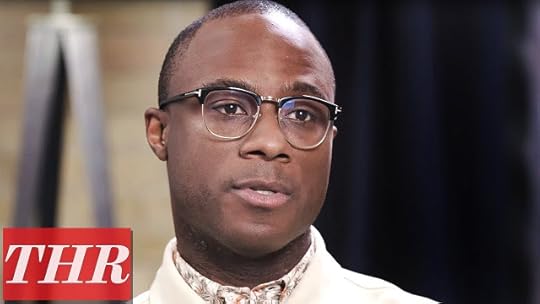 'Director Barry Jenkins and stars KiKi Layne and Stephan James join THR at the 2018 Toronto International Film Festival to talk about their upcoming adaptation of the James Baldwin novel If Beale Street Could Talk.' -- The Hollywood Reporter
'Director Barry Jenkins and stars KiKi Layne and Stephan James join THR at the 2018 Toronto International Film Festival to talk about their upcoming adaptation of the James Baldwin novel If Beale Street Could Talk.' -- The Hollywood Reporter
Published on September 10, 2018 04:23
Panel -- John Akomfrah's 'Precarity': Art and the Humanities
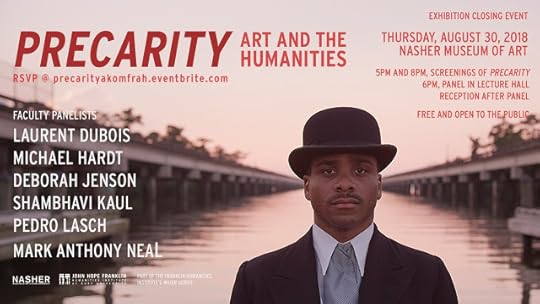 'The Franklin Humanities Institute at Duke University presented an interdisciplinary panel of humanities faculty—experts in jazz, archives, water, mental illness and art. The panelists Laurent Dubois, Michael Hardt, Deborah Jenson, Shambhavi Kaul, Pedro Lasch and Mark Anthony Neal discussed themes in Precarity, the three-channel video by acclaimed British filmmaker John Akomfrah. Precarity is about the life and myth of Charles “Buddy” Bolden, the New Orleans cornet player credited as "the father of jazz." Part documentary, part costume drama, part music video, Precarity addresses history, memory, mythology, cultural identity, health, race—and many other issues facing U.S. society today. Franklin Humanities Institute Director Ranjana Khanna moderated the roundtable.
'The Franklin Humanities Institute at Duke University presented an interdisciplinary panel of humanities faculty—experts in jazz, archives, water, mental illness and art. The panelists Laurent Dubois, Michael Hardt, Deborah Jenson, Shambhavi Kaul, Pedro Lasch and Mark Anthony Neal discussed themes in Precarity, the three-channel video by acclaimed British filmmaker John Akomfrah. Precarity is about the life and myth of Charles “Buddy” Bolden, the New Orleans cornet player credited as "the father of jazz." Part documentary, part costume drama, part music video, Precarity addresses history, memory, mythology, cultural identity, health, race—and many other issues facing U.S. society today. Franklin Humanities Institute Director Ranjana Khanna moderated the roundtable.
Published on September 10, 2018 04:16
Amandla Stenberg Talks Identifying with 'The Hate U Give'
 'Stars Amandla Stenberg, Russell Hornsby, and director George Tillman Jr. join The Hollywood Reporter at the 2018 Toronto International Film Festival to talk about their upcoming drama The Hate U Give, based on Angie Thomas's novel of the same name.' -- The Hollywood Reporter
'Stars Amandla Stenberg, Russell Hornsby, and director George Tillman Jr. join The Hollywood Reporter at the 2018 Toronto International Film Festival to talk about their upcoming drama The Hate U Give, based on Angie Thomas's novel of the same name.' -- The Hollywood Reporter
Published on September 10, 2018 04:05
Mark Anthony Neal's Blog
- Mark Anthony Neal's profile
- 30 followers
Mark Anthony Neal isn't a Goodreads Author
(yet),
but they
do have a blog,
so here are some recent posts imported from
their feed.



